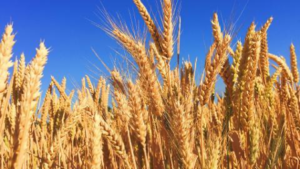Freedom Come Rain Newspaper Vol. 1 Issue 39
By Sylvia Adjoa Mitchell
And God said, Let us make man in our image, after our likeness: and let them have dominion over the fish of the sea, and over the fowl of the air, and over the cattle, and over all the earth, and over every creeping thing that creepeth upon the earth. Genesis 1:26
Jamaica’s Medicinal Plants – Bamboo
She is a tree of life to those who take hold of her,And happy are all who hold her fast (Proverbs 3:18).

Bamboo
The future is coming, and it is green. One of the fastest-growing, extraordinary, but surprisingly under-utilized and over-looked plants (in Jamaica that is), is bamboo. The most common bamboo species in Jamaica is Bambusa vulgaris. In this article, we will consider the nutritional and medicinal properties of bamboo. All the parts of the bamboo plant (seeds, leaves, rhizome, culm shaving, roots, and shoots) have some sort of medicinal benefits. For example, the leaf has antioxidant, antibiotic and anticancer properties. Importantly, all the items shown in this article are produced in Jamaica.
Bamboo Shoots as Food
In 2016, at the Denbigh Agricultural and Food Show, five innovative and edible bamboo shoot dishes were introduced to the public for the first time: Sweet and Sour Edible Bamboo Shoots, Curried Edible Bamboo shoots, Jerked Edible Bamboo Shoots, Shake and Baked Edible Bamboo Shoots and Brown Stewed Edible Bamboo Shoots. If kept frozen, these products will last for six months. I can attest, they were very tasty.

Bamboo shoots are used in many exquisite culinary preparations like pickles, vegetables, soups, salads, vinegar and several other forms in various countries. The international trade in edible bamboo shoots is over 275 million USD and growing. Jamaicans are no stranger to eating bamboo and are harnessing this potential and getting healthy and wealthy in the process!
Bamboo Leaf Tea
Bamboo leaf is a useful ingredient in feed for animals. It should be of no surprise then that the leaves make a fine tea for us as well. The main active compound found in bamboo is a mineral known as silicon dioxide or silica. Bamboo is one of the few plants alongside horsetail herb and stinging nettle that are rich in silica. However, bamboo leaves have 10 times more silica compared to stinging nettle or horsetail herb.

The leaves are also a rich source of other minerals such as selenium, iron, copper, zinc, and manganese. This helps to strengthen the hair, skin and nails; bones and teeth; and may prevent Alzheimer as the silica can block the uptake of aluminium.
Bamboo leaves possess nutrients and bioactive compounds, including antioxidants such as phenols, flavonoids, and vitamins C, and E. They play a part in scavenging free radicals in the body known to cause cell damage. Bamboo leaves have also been found to possess antiviral activities against the influenza virus and HIV by blocking viral attachment in the body. Anti-bacterial activity has also been found.

Bamboo Charcoal
Bamboo charcoal can be made in the same way as wood charcoal is made but requires specialized training. It’s included here under the food section because bamboo charcoal burns clean without smoking, making it ideal to use for cooking if needed. Well recommended for barbecues!
Bamboo Vinegar
In the process of making charcoal, vinegar is made. Several charcoal manufacturers have made bamboo vinegar recently, including myself during an EFJ project. Bamboo vinegar has been shown to improve growth rate of vegetables as it works as an antibacterial agent; it is also a good fertilizer.
Its antibacterial properties make it ideal for use in food and drink processing as well as in water purification in sewage treatment plants.
Bamboo Activated Charcoal
Bamboo charcoal, and even moreso, activated charcoal, has a high surface area. Just a single ounce of activated charcoal has 396,900 sq ft of surface area which can be used to trap odours and excess moisture! It is therefore used for a wide range of purposes including water filters, air purification for removing toxins and odour in the atmosphere, in toothpastes, cosmeceuticals, etc.
Bamboo Ketchup
Bamboo ketchup was put on the market by Chevaughn Bowen, a Jamaican entrepreneur and a graduate of the International University of the Caribbean (IUC). The product is produced by Jamdun’ Food Processing in Kingston.
Bowen, who won a Jamaica Manufacturers’ Association prize in 2010 for his hot and spicy barbe-fry sauce, said young people who have innovative business ideas should ensure that they are written and placed in the marketplace for development.
We are not finished exploring the many uses of bamboo to produce nutritious food, but we must leave this article here. I hope you go exploring and learn more about this amazing plant!
I have many references too numerous to put here. Please contact me if you are interested in this plant.
References
Goyal AK and BK Brahma (2014) Antioxidant and nutraceutical potential of bamboo: an overview. Int J Fund Appl Sci 3(1): 2-10.
Nongdam P and L Tikendra (2014) The nutritional facts of bamboo shoots and their usage as important traditional foods of Northeast India. Hindawi or ISRN Article ID 679073, 17 pages.
Dr. Sylvia Adjoa Mitchell, Senior Lecturer, Medicinal Plant Research Group, The Biotechnology Centre, UWI, Mona, [email protected]
Disclaimer: Articles carried by FCR Newspaper, similar in nature to the one above, are for informational purposes only. Your health remains your responsibility.





